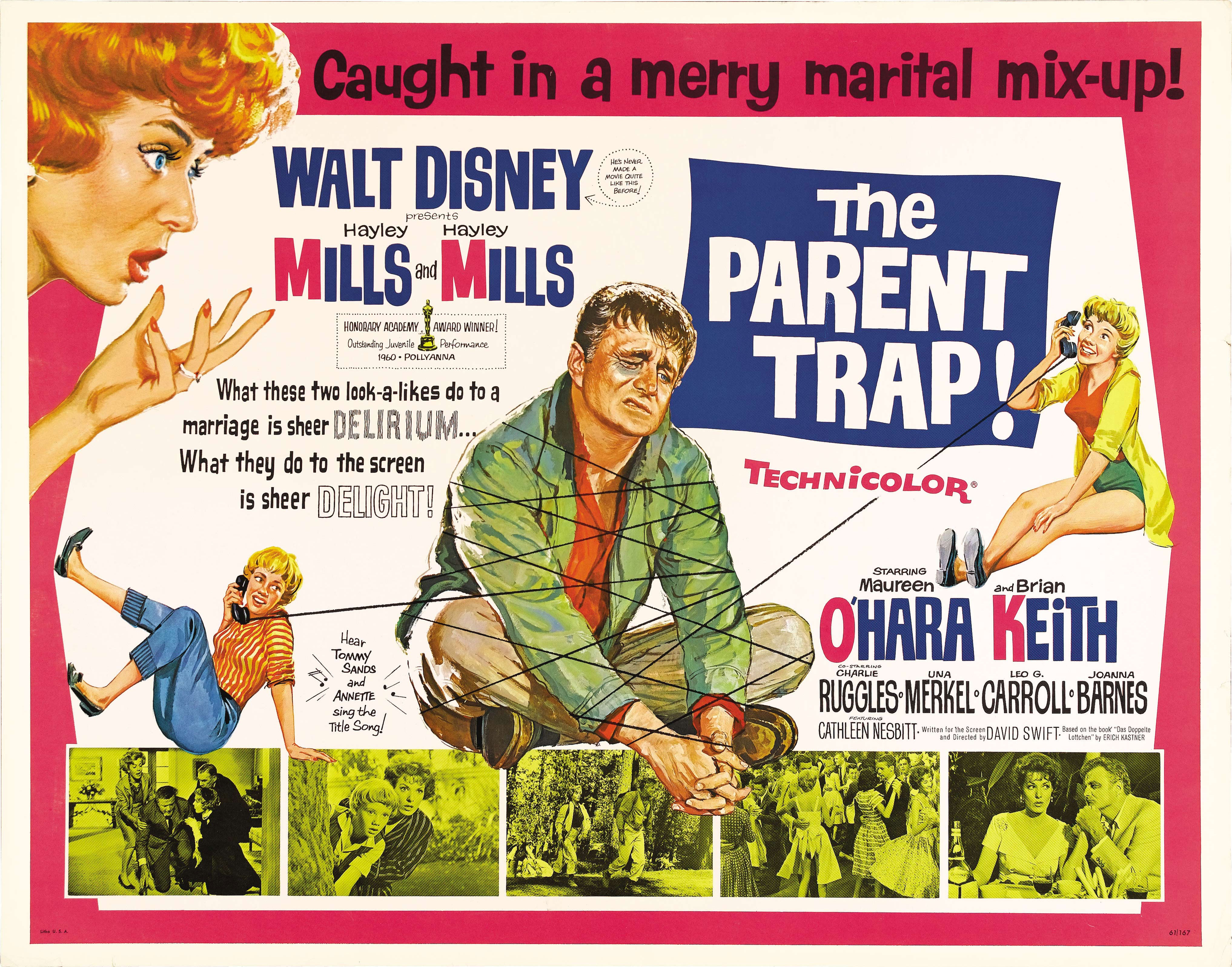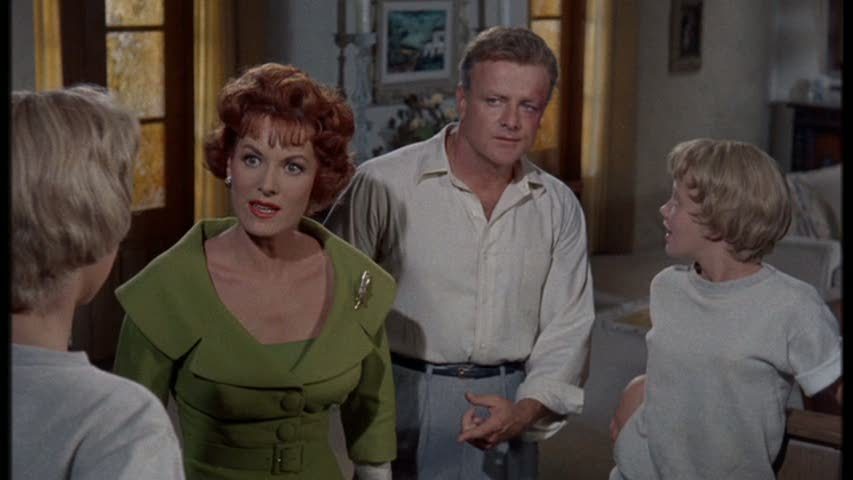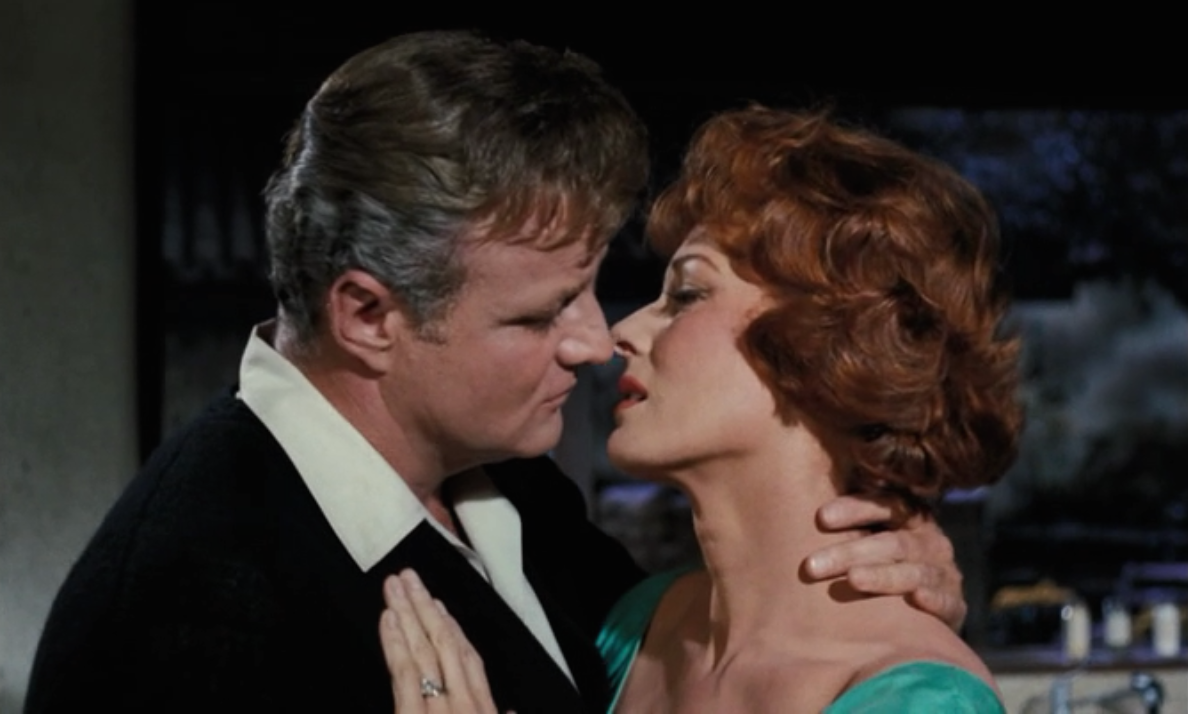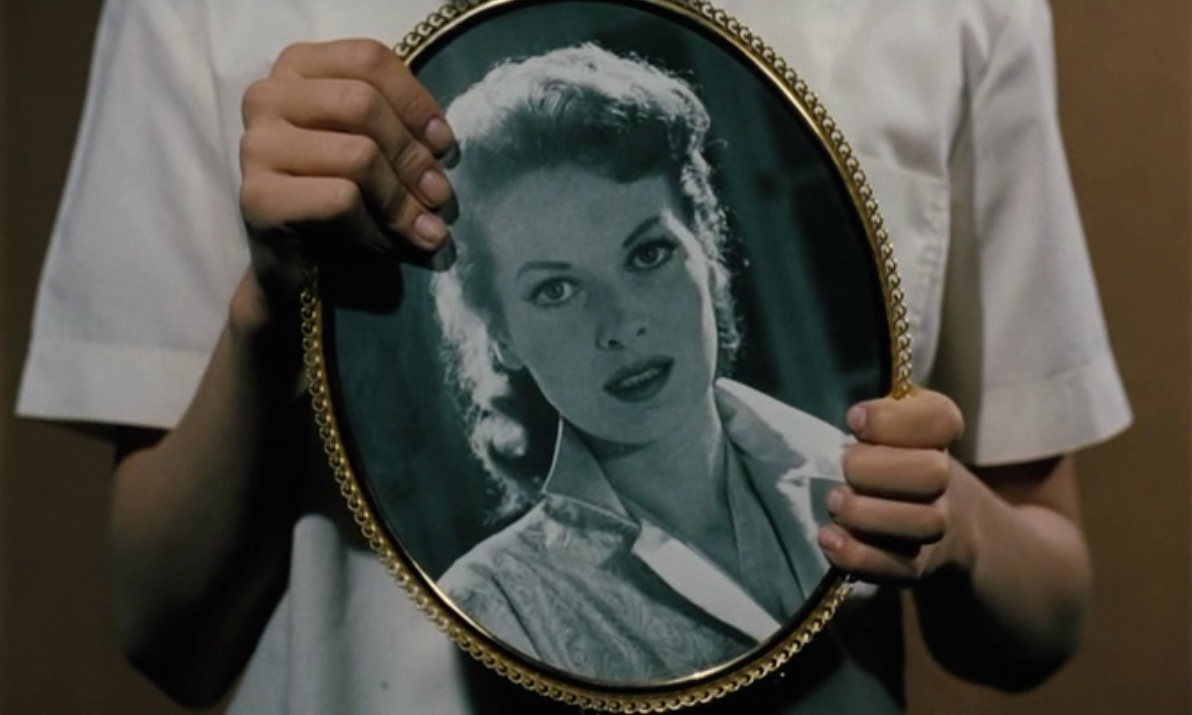Welcome to "The Honoraries". From now until November 8th when the Governor's Awards are held, we'll be celebrating the careers of the three Honorary Oscar recipients of 2014 (Maureen O'Hara, Hayao Miyazaki, Claude Carriere) and the Jean Hersholt winner (Harry Belafonte). Here's Abstew...

Maureen O'Hara's impressive body of work includes a Best Picture winner (1941's How Green Was My Valley), a perennial Holiday favorite (1947's Miracle on 34th Street), even an early film with Hitchcock (1939's Jamacia Inn). No offense to those classics but the greatest film the star ever appeared in has to be that Disney masterpiece about a pair of long-lost twins trying to reunite their parents in The Parent Trap.
It was my first encounter with The Queen of Technicolor and although the appeal of twice the juvenile star wattage of teenage Brit Hayley Mills was the main selling point as a child, there was always something special about O'Hara as their mother, Margaret McKendrick. Even before she finally appears a half an hour into the movie, the film has already built her up as a glamorous and intriguing figure. Susan (Hayley Mills as tomboy) talks about how she used to stare at her picture and how fabulous ("Absolutely fabulous") her mother was. And the word Sharon (proper, upper-crust Hayley Mills) uses to describe her is divine, both adjectives usually reserved to describe bedazzled drag queens lip-syncing for their lives. But once Sharon reveals the beauty shot of her mother, there was no doubt in my young mind that that was a movie star. [More...]
Even though O'Hara had been a movie star for over 20 years before the release of The Parent Trap, this project launched a new chapter in her career and arrived at just the right time. In 1957, the gossip magazine Confidential claimed that O'Hara was caught having sex in the balcony of the famed Grauman's Chinese Theater. She sued them and won her case (her passport proved she was in Spain at the time the scandal allegedly took place), but the story and trial still did enough to damage her reputation, making it harder for studios to employ her.
When Walt Disney offered her the part in The Parent Trap, he knew O'Hara needed the work and initially offered her a third of her normal salary and billing below newbie Hayley Mills. O'Hara wanted to appear in the film, knowing that working with the wholesome studio would restore her position in Hollywood, but balked at the stipulations. She held out and was able to receive her normal salary, but lost the battle for billing to Mills who had become a star thanks to Disney's Pollyanna the year before and appeared twice above the title. It's also one of the few times that O'Hara, who had a side career as a singer, ever got to sing onscreen. Her song "For Now, For Always" was also featured on the hit soundtrack that had a Billboard Top Ten song thanks to Mills' duet with herself "Let's Get Together". The film was a huge success and revitalized her career but O'Hara would never work with Disney again.

Why does the film work so well and why has it endured for so long? It's because though it may be a film for children, none of the actors play it that way. The material is never dumbed down and no one involved seems to ever be worried about losing the kids in the quieter moments. (There's also moments of sexual innuendo which I definitely did not get as a child, but appreciated as I watched it recently.) O'Hara gives as strong and poignant a dramatic performance here as she would working on a John Ford film with the added bonus of showing off her skills as a comedienne. I love the moment when Margaret discovers that since her return from summer camp, Sharon has actually been Susan all along. O'Hara very subtly lets the reveal wash over her and allows her hands to tremble as she touches the face of the daughter she hasn't seen in over a decade, almost fearful in her joy. The actress also conjures a believable history with former husband Mitch (Brian Keith, whom she also appeared with in The Deadly Companions the same year). Their tearful and romantic rekindling at the film's end (where she's barefoot in the kitchen, naturally -- I never claimed the film was progressive), while inevitable, has a simple loveliness.

But the scene that O'Hara really gets to shine is when she sees Mitch again for the first time since their divorce and meets his new younger fiancée, Vicky (Joanna Barnes). O'Hara owns it as she struts around in a form-fitting white dress with colorful sash that hugs her curves. Getting older has not diminished her sex appeal and she proves that she's more than capable of taking on a woman almost half her age. She gets in some good digs as well as she "mistakenly" confuses Vicky's mother for Mitch's new love. But the moment I absolutely love is her parting line, which could take its place in great moments of screen bitchery:
Good-bye, Vicky darling. You're just as cute as you can be.
O'Hara's Maggie knows that to kill them with kindness is much more effective than out and out hostility.

Although the film received two Oscar nominations for Sound and Film Editing, a part of me wishes that they could have found a place in Supporting Actress for O'Hara that year. Though not your typical Oscar performance, O'Hara was more than deserving and the film is arguably her best remembered. When she finally receives her Honorary Oscar in November for recognition of her entire body of work, I know what film I'll be thinking of the most when she gives her speech. And it didn't even require the scheming of a pair of twins to finally get Maureen O'Hara and Oscar together. (yeah, yeah, yeah...♪ ♫)
